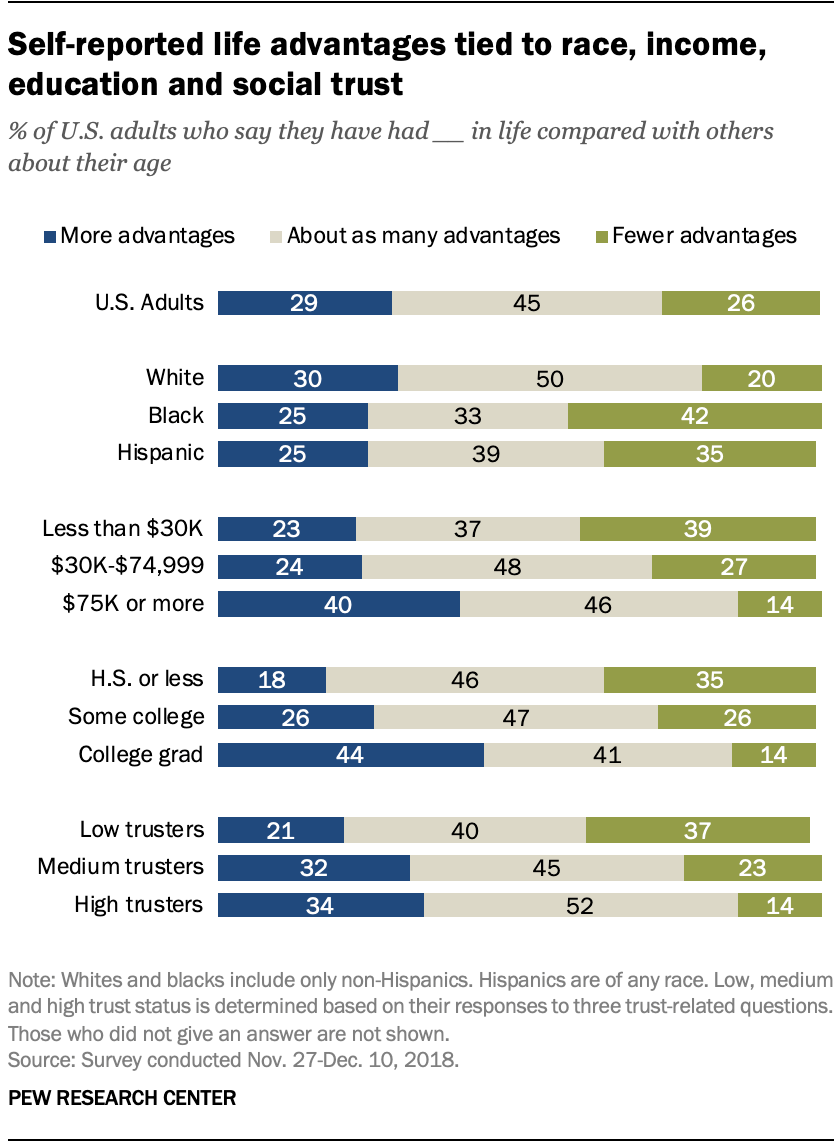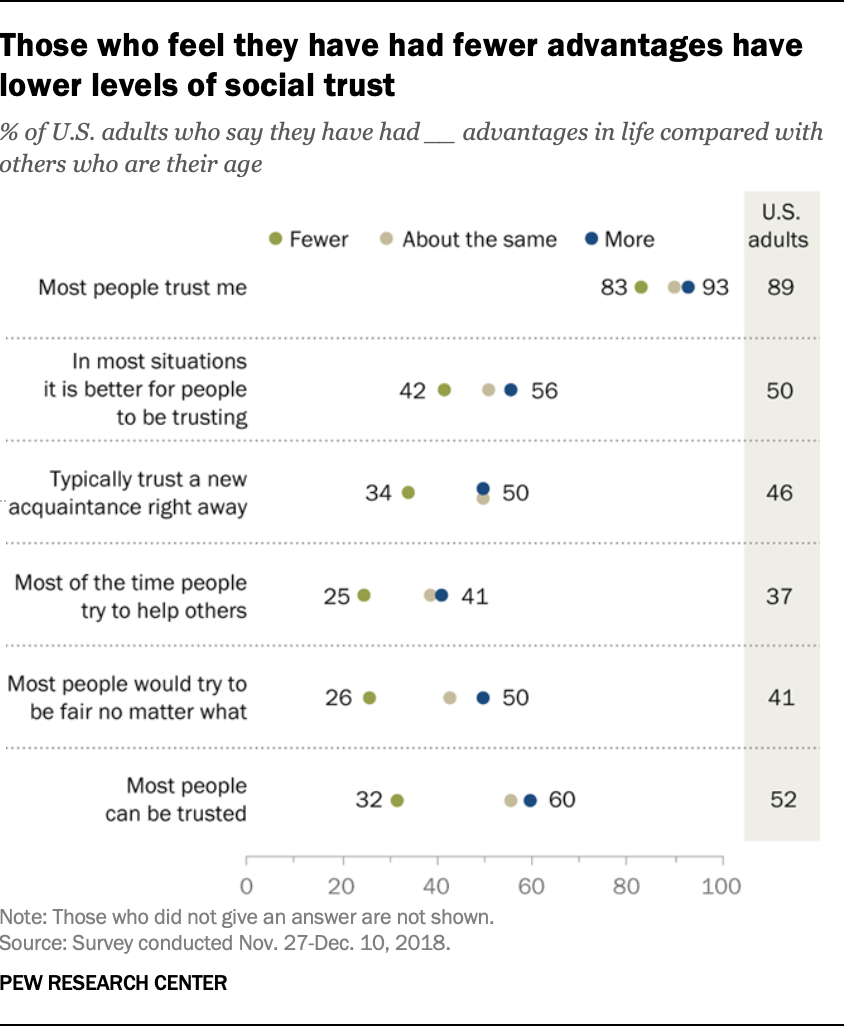
Amid debates about the impact of privilege and inequality in the country, a Pew Research Center survey conducted in late 2018 asked U.S. adults how they would compare their advantages in life with those who are about their same age. Overall, 29% said they have had more advantages in life than others their age; 26% felt they have had fewer advantages; and 45% said they have had about as many advantages.
The survey of 5,364 respondents was conducted on the Center’s American Trends Panel. Americans’ assessments varied substantially across different groups. Race stood out as one of these demographic factors, with 42% of black Americans and 35% of Hispanics reporting they felt they have had fewer advantages in life, compared with 20% of white Americans who said the same. Similar relationships between self-reported advantage and race have been seen in previous Center studies.
How we did this
This post draws on a survey of 10,618 U.S. adults conducted Nov. 27-Dec. 10, 2018, for a report on “Trust and Distrust in America.” Everyone who took part is a member of Pew Research Center’s American Trends Panel (ATP), an online survey panel that is recruited through national, random sampling of residential addresses. This way nearly all U.S. adults have a chance of selection. The survey is weighted to be representative of the U.S. adult population by gender, race, ethnicity, partisan affiliation, education and other categories. Read more about the ATP’s methodology.
Here are the questions used for this report, along with responses, and its methodology.
Other factors like household income and education were also closely tied to people’s feelings of advantage and disadvantage. That is, the lower the household income in a person’s life and the lower their level of education, the less likely they were to feel they have had advantages and more likely they were to feel they have faced disadvantages. For example, 39% of Americans living in households earning less than $30,000 a year reported having fewer advantages in life, compared with 27% of those whose annual household income is $30,000 to under $75,000 and only 14% of those in households earning $75,000 or more. Similarly, 35% of those with a high school education or less and 26% of those with some college education reported having fewer advantages in life. By contrast, 14% of those with a bachelor’s degree or more felt the same.

These findings come from a 2018 survey about the state of trust and distrust in America, which is part of the Center’s in-depth studies of trust, facts and democracy. As such, the Center explored the relationship between trust and self-reported advantage. Social trust – that is, trust in other people – was positively correlated with feelings of advantage. Among those displaying low levels of social trust (“low trusters”), 37% said they have had fewer advantages in life, compared with only 23% of medium trusters and 14% of high trusters.
Respondents in this survey were categorized as high, medium or low trusters depending on their response to three questions in the survey: whether, generally speaking, people can be trusted; whether most people would try to be fair no matter what; and whether most of the time people try to help others. (For more details on how these categorized were developed, please read here.)
Across the board, those who reported fewer advantages also reported lower levels of trust. For instance, only 32% of those reporting fewer advantages felt most people can be trusted, whereas a majority (60%) of those reporting more advantages said this.
These findings also relate to other Center data about Americans’ views about why people are rich or poor. For instance, a recent survey found that 65% say the main reason some people are rich is because they have had more advantages in life than most other people. Some 71% say people are poor because they have faced more obstacles in life.
Note: Here are the questions used for this report, along with responses, and its methodology. Download the full dataset from the Center’s study of trust and distrust in America here. (You’ll need to create an account first. You can find more details about how to download Pew Research Center datasets in this blog post.)